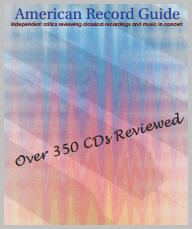Reviewer: Charles
Brewer
The title of this release, “La Francesina” (the little French woman), is the
nickname by Handel’s rivals. When that group folded, she performed in operas
and for Elisabeth Duparc (d.1778), a singer of French origin, trained in
Italy, who was brought to England to sing in the “Opera of the Nobility”,
formed oratorios by Handel from 1739 until 1749, when a new young soprano,
Giulia Frasi, came to the composer’s attention.
This
judicious selection from Handel’s lyrical and dramatic works supplies
examples of the range of Duparc’s repertoire, from Michel in Saul to the
title character in Semele. Sophie Junker studied in her native Belgium and
at the Guildhall in London. Most of her earlier recordings have been smaller
dramatic roles or soloist in larger choral works (Bach cantatas, Jan/Feb
2013; oratorios by Charpentier, Jan/Feb 2015). This is her first solo
recording. The collection includes soprano arias from both Italian operas (Faramondo,
Serse, both 1738, and Deidamia, 1741) and oratorios (Saul, 1739; Ode to St
Cecilia’s Day, 1739; Semele and Joseph and his Brethren, both 1744; and
Hercules, 1745).
Junker responds most affectively and effectively to the dramatic
and musical demands of Handel’s lyrical writing, from the poignant
invocation to music with solo cello from the Ode for St Cecilia’s Day, ‘What
passion cannot music raise and quell’, to the passionate outbursts of ‘Va,
perfido!’ from Deidamia. Particularity impressive and imaginative are her
cadenzas. She is sensitively supported by the musicians of Le Concert de
L’Hostel Dieu, who also supply three short orchestral interludes.
Complete texts and translations.
Fermer la fenêtre/Close window
|




